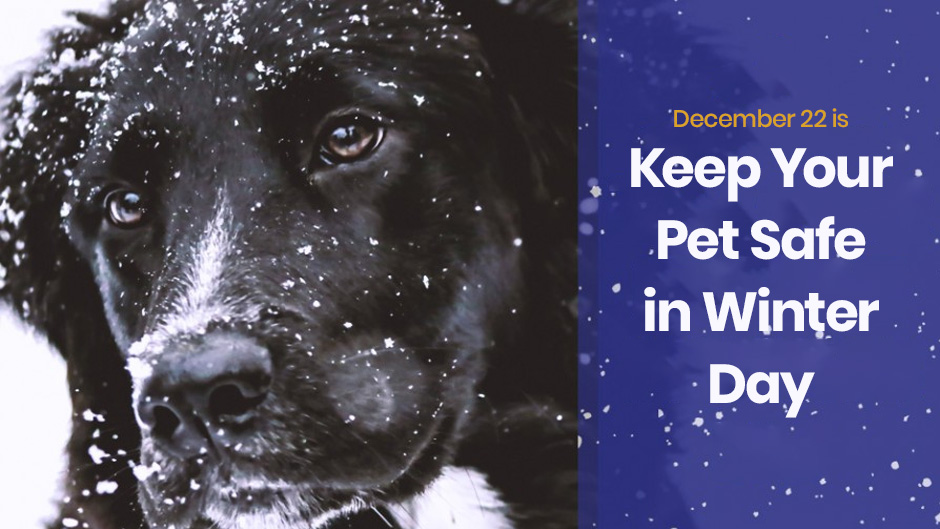ASPCA Guidelines to Keep Pets Safe in Winter
Many of the guidelines the organization offers are common sense, such as limiting your dog or cat's time outside when the temperature is low and the wind chill factor is high. You may not have considered others, such as using ice-melting products free of salt and chlorine. That is because these elements can become stuck in a pet's paw pads and cause irritation and infection. Some other cold weather safety tips that ASPCA and Minnesota Veterinary Hospital recommends include:
- Keep pets on a leash outside since they can become disoriented by the snow and ice and not recognize familiar surroundings
- Make sure anti-freeze is in a sealed container and place it on a high shelf in the garage
- Clean any anti-freeze spills immediately as pets may assume the spill is water and become ill by drinking it
- Before starting your car, look underneath the hood and near the wheels where an animal might be trying to keep warm
- Make sure that your pet has microchip identification to allow someone to find him faster if he should become lost
- Consider buying your pet a coat and booties for all four paws and put them on when going outside in extremely cold weather
- Keep outdoor rodenticide products in a location where your pet can't reach them
Recognizing Signs of Hypothermia and Frostbite in Pets
You might think that animals can stay warmer than humans in the winter because of their fur coat. However, this isn't necessarily true. Cats and dogs weigh much less than people do, which means they can't depend on body weight and fat to keep them warm. They're often not dressed for the weather as we would be either.
You might think that animals can stay warmer than humans in the winter because of their fur coat. However, this isn't necessarily true. Cats and dogs weigh much less than people do, which means they can't depend on body weight and fat to keep them warm. They're often not dressed for the weather as we would be either.
Unfortunately, it doesn't take long in severely cold weather for your pet to develop hypothermia or frostbite. The first thing you're likely to notice is that she is unable to control her shivering. Other things to look for include:
- Lethargy
- Weakness
- Icicles anywhere on the body
- Black or bright red appearance to any body tissue
If you notice these symptoms, contact us immediately for evaluation and treatment.
Minnesota Veterinary Hospital wishes you a safe and happy winter season. Keep in mind that dogs still need to go outside for exercise and to relieve themselves, no matter how cold it gets. There's also no reason you can't enjoy the season with your pet on days that aren't dangerously cold. In fact, Walk Your Dog Month is next month to encourage dog owners to exercise with their pets all year long.

